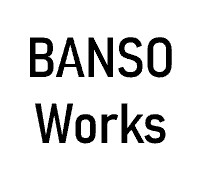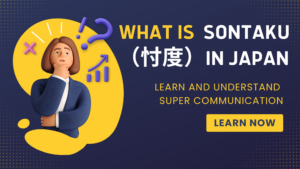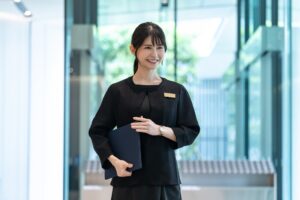What is 12 Interview skills in Japan?
12 Interview skills in Japan

01: メラビアンの法則 |the rule of Mehrabian
「7-38-55ルール」とも呼ばれます。人間は他人とコミュニケーションを取るとき、言語・聴覚・視覚の3つの情報から相手を判断している、と仮定し、情報が相手に与える影響は、言語:7% 聴覚:38% 視覚:55% としました。笑顔やジェスチャー、挨拶などを大事にしましょう。
Also known as the "7-38-55 rule". When humans communicate with others, it is assumed that they judge the other person from the three information of language, hearing, and vision, and the influence of the information on the other person is language: 7%, hearing: 38%, vision: 55%. It was made. Take care of smiles, gestures, greetings, etc.

02: ご辞儀|the rule of "Bow"
日本独自のマナーです。入室後、着席の前と退室前に、お辞儀しましょう。理想なお辞儀のコツとして、腰から頭まで背筋をまっすぐ伸ばして倒す。さらに、ゆっくりと起こすと丁寧さが増します。
It is a manner unique to Japan. Bow after entering the room, before sitting down and before leaving the room. The ideal bowing tip is to straighten your back from your waist to your head and knock it down. In addition, if you wake it up slowly, it will be more polite.
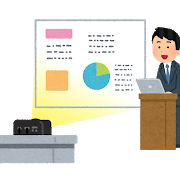
03: ロジカルな話し方 |Logical Speaking
話し方をロジカルに。スマートさが見られています。話は、結論から言いましょう。聞かれたことだけにシンプルに答えましょう。「その質問については2点あります。1点目は・・なぜなら・・」という答え方がベストです。
Make your speaking logical. Smartness is seen. Let's start with the conclusion. Simply answer only what you are asked.
Make your speaking logical. Smartness is seen. Let's start with the conclusion. Simply answer only what you are asked. The best answer is "There are two answers to that question. The first is … because …".

04: コミュニケーションの法則 |the rule of communication
面接の基本は、コミュニケーションです。つまり双方の会話のキャッチボールです。貴方だけが長く話すことのないよう、聴かれたことは長くとも数分以内で回答しましょう。
The basis of the interview is communication. In other words, it is a catch ball for both conversations. Answer what you hear within minutes at the longest so that only you do not speak for a long time.
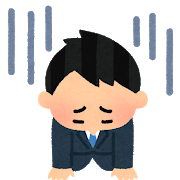
05: 自己一致力 |Self-Matching
自己一致とは、自分自身を正確にとらえている事。自慢しすぎることもなく、過小評価しすぎることもない状態です。特に外国籍の方は、日本人から見ると、多少過大評価に聞こえますので、多少謙虚に言うとよいかもしれません。
Self-match is an accurate picture of yourself. You can't be too proud or underestimated. Especially for foreign nationals, it sounds a little overestimated from the perspective of Japanese people, so it may be a good idea to be a little humble.

06: キャリアの一貫性 |Career consistency
キャリアの一貫性があると、面接官は安心し、理解が進みます。あなたが、過去にやってきたこと、現在取り組んでいる事、そして、これからやりたいことを軸をもって、話しましょう。
Career coherence gives interviewers peace of mind and better understanding. Let's talk about what you have done in the past, what you are working on now, and what you want to do in the future.

07: 人間力 |Human Skills
コミュニケーション力や達成意欲、好奇心など人間力をアピールすることは有効です。しかし、あいまいな要素の為、それだけの固執すると貴方の専門性が捉えにくくなりますので注意しましょう。
It is effective to appeal human power such as communication ability, motivation for achievement, and curiosity. However, be aware that due to ambiguous elements, sticking to that much will make it difficult to capture your expertise.
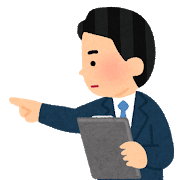
08: 専門スキル |Expert skills
専門スキルを持っていることが、特に転職の大前提条件です。この専門スキルを過去の実績や、資格などに絡めて、うまくアピールできることが必要です。
Having specialized skills is a major prerequisite for changing jobs. It is necessary to be able to appeal this specialized skill well in connection with past achievements and qualifications.

09: 強みの再現 |Reproducibility of strengths
貴方がアピールしてきた専門性、人間力が、組織で実際に活用できるかが大事な焦点です。応募ポジションに自身のスキル・経験がどうやって活かせるのか、ロジカルに説明しましょう。
The important focus is whether you can actually utilize the expertise and human power that you have appealed to in your organization. Let's logically explain how you can apply your skills and experience to the application position.
10: ユニークさ |Uniqueness
人気企業であれば、多くの応募者がいます。その中で、あなたが選ばれるなら何らかのユニークさが必要です。人と違う何かをアピールに含ませる必要があります。
If it is a popular company, there are many applicants. Among them, if you are chosen, you need some uniqueness. You need to include something different in your appeal.
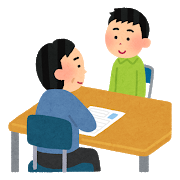
11: 傾聴スキル |Listening skills
面接では貴方が話すだけが目的ではありません。面接官の話をしっかり聴いている態度が重視されます。しっかり、相槌をうったり、目を見て、うなづいたりしましょう。
Interviews aren't just about talking to you. The attitude of listening carefully to the interviewer is important. Make sure to give a backlash, look at your eyes, and nod.

12: 質問力スキル |Questioning skills
日本の面接では、面接時間の最後に質問時間があります。これは、企業に対して聞いてみたいことを聴ける5分程度の時間です。この際、調べればわかる単純な質問や給与を聴くよりは、仕事の遣り甲斐や、キャリアについて聞くのが良いでしょう。
In Japanese interviews, there is a question time at the end of the interview time. This is about 5 minutes to listen to what you want to ask the company. At this time, it is better to ask about the rewards of work and career than to ask simple questions and salaries that can be found by examining.
